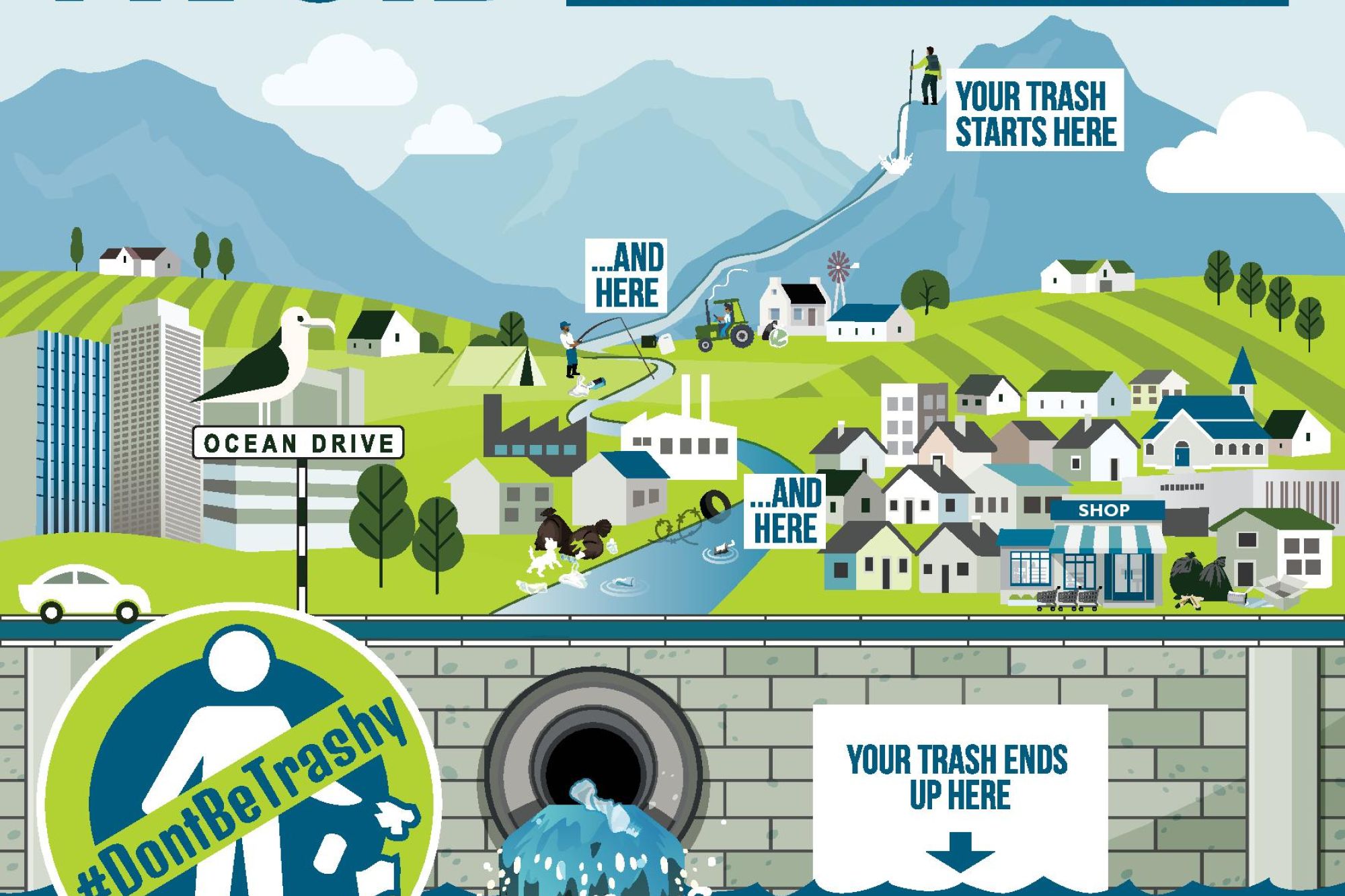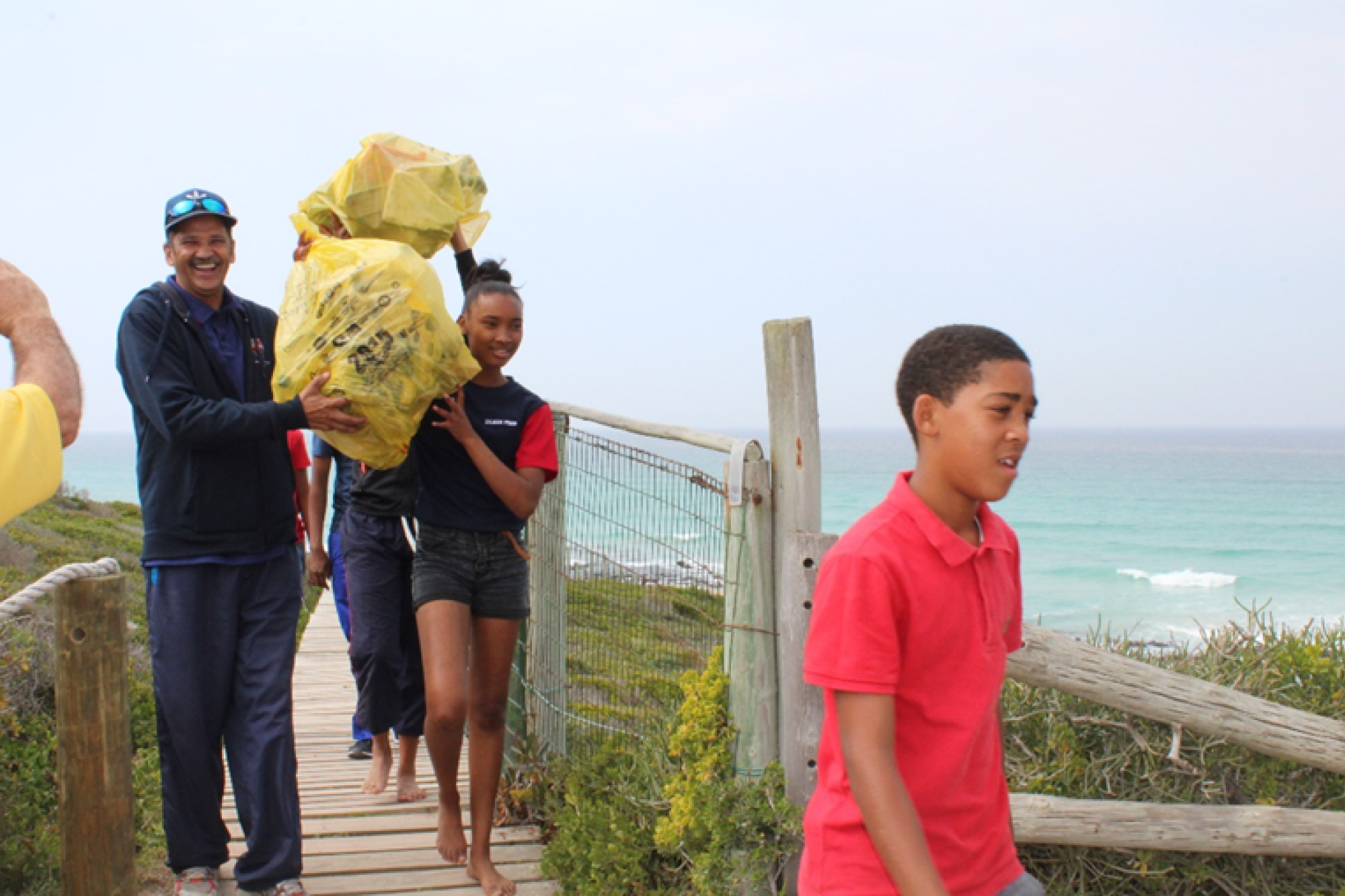
Marine Month 2020 - Help to keep our oceans clean
By Lusanda Gqaza and Yanga Mbatana, Environmental Education Officers, De Hoop Nature Reserve
October is Marine Month and a timely reminder to us all about the importance of our waterways and oceans.
Litter is not only harmful to marine life but also toxic to humans and water systems. It is our duty as conservators and the general public to conserve and sustain our coastal environment for future generations.

Our waterways and oceans are in grave danger from litter - over 80% of marine pollution comes from land-based activities such as the plastic bags we use in our households, fertilizers used by farmers, sewage disposals, and oil spills. Most of this waste ends up in our oceans which has a negative impact in our marine ecosystems.
Marine animals get entangled in the plastic as they mistake the plastic for food and once ingested, this can result in discomfort and ultimately death. More and more marine animals are becoming endangered and face extinction due to the pollution in our
oceans, including African penguins, sea turtles, sea birds.

Coastal clean ups assist us in tackling one of the biggest threats our marine ecosystems face, and also allows us to collect data to analyse and identify the most abundant and harmful types of debris. Typically, amongst the most abundant items found during these clean ups are cigarette butts, food wrappers, straws and beverage bottles.
The process starts with each one of us – reduce your consumption of disposable items and re-use and recycle plastic, glass, tin and paper. Start in your own home and then begin a recycling or litter prevention project at your school or in your community.




